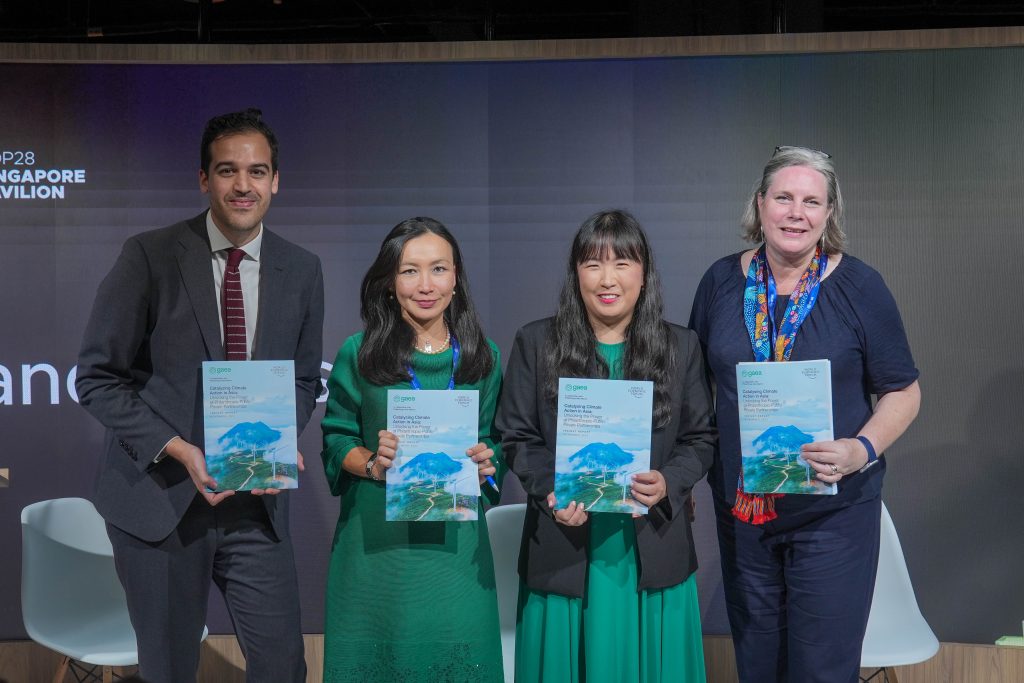A $3 trillion annual funding gap for climate solutions must be met with a tri-sector philanthropic-public-private partnership. That’s according to a new report published by the World Economic Forum’s Giving to Amplify Earth Action (GAEA) initiative, in collaboration with Philanthropy Asia Alliance (PAA) and the ClimateWorks Foundation.
The report, published at the COP28 Singapore Pavilion and drawing on insights from over fifty organisations and individuals spanning nine countries, including philanthropic institutions in Asia, advocates for a trisector solution that says will create spaces for different parties to connect and collaborate to feed the need for information and bring diverse voices to the table. Innovative financing and engaging communities will be required to make philanthropic-public-private ventures successful, the report authors say.
According to research by ClimateWorks Foundation, less than 2 per cent of annual global philanthropic giving goes towards preventing climate change. And even less finds its way towards Asia.

(From Left to Right) Mr Luis Alvarado (Head of GAEA Program, Strategic PPP Partnerships, World Economic Forum), Ms Gim Huay Neo (Managing Director, World Economic Forum), Ms Sharon Koh (Director, Knowledge & Insights, Philanthropy Asia Alliance) and Ms Helen Mountford (President and CEO, ClimateWorks Foundation) at the launch of the Asia-focused climate philanthropy report at the COP28 Singapore Pavilion.
Despite these gaps, philanthropic institutions and individuals surveyed said they were keen to expand their funding in these areas in the region, recognising opportunities for a just energy transition, conserving terrestrial and marine ecosystems, investing in domestic implementation capacity, and fostering resilient, sustainable agriculture.
Philanthropic endevours in Asia, driven by a transfer of intergenerational family wealth, are going beyond traditional giving and looking at how they can direct support towards climate initiatives.
“In Asia, the impact of climate change is particularly acute as temperatures in the region are rising faster than the global average. This report responds to a growing interest among local philanthropy in Asia to invest in climate, identifying a number of examples of climate philanthropy opportunities in Asia and showcasing the unique strength of public, private, and philanthropic partnerships to drive collective action for the benefit of people and the planet,” said Ms. Helen Mountford, President and CEO, ClimateWorks Foundation.
“The multi-stakeholder value chain can drive scale and impactful change, as we collectively take steps to solve the climate challenges in Asia. This report is a catalyst to deeper involvement and collaboration of partners from across the philanthropic, public, and private sectors to exchange knowledge and mobilise capital in a meaningful way in Asia,” said Seok Hui Lim, CEO of Philanthropy Asia Alliance.
Shafi Musaddique is the news editor at Alliance magazine.



Comments (0)
The important thing about the executive's mindset is that it brings revenue to his business. Machinery is very important when you install devices or tools such as white screen, black screen